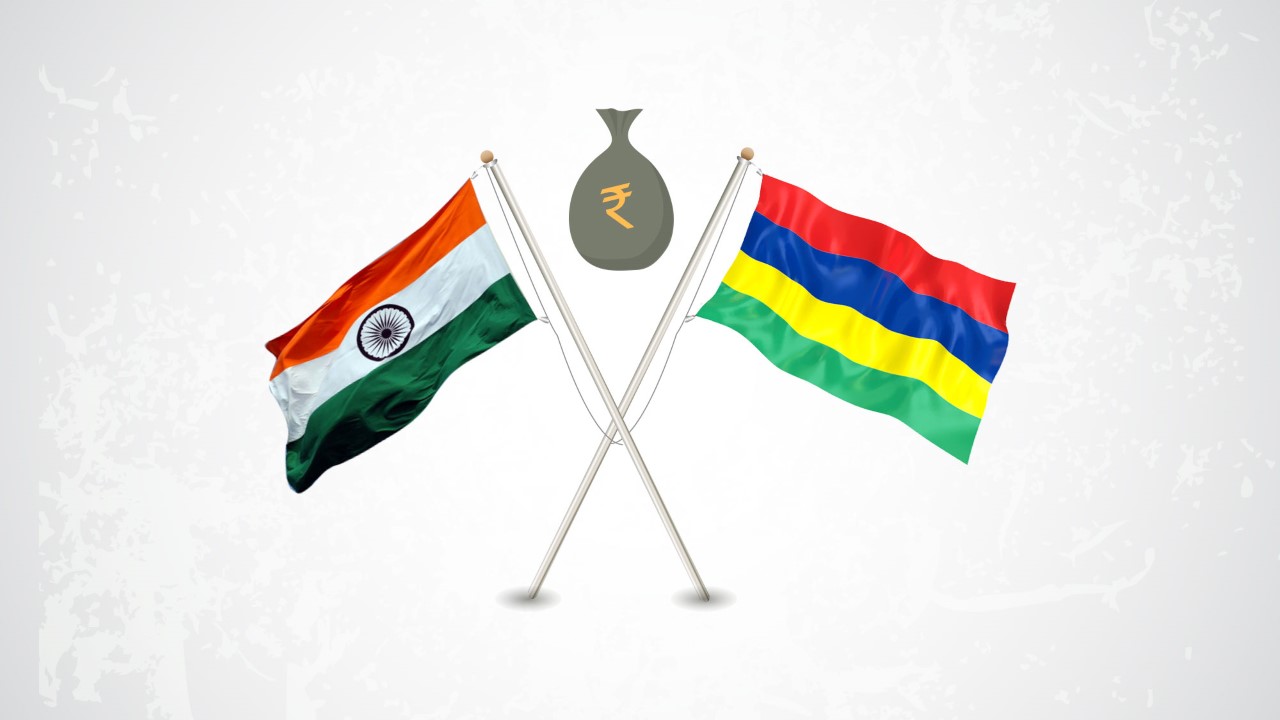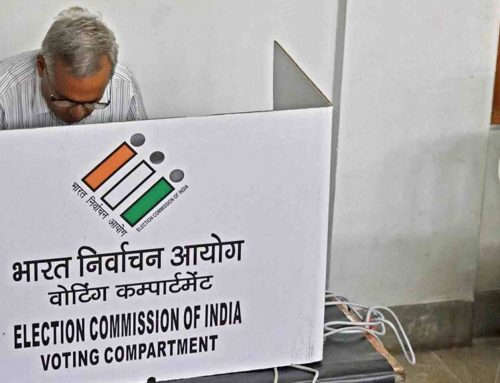– Abul Kalam Azad Sulthan, Advocate, High Court of Judicature at Madras and Madurai Bench of Madras High Court & Partner, Spicy Law Firm.
Introduction:
Mauritius is an Island nation in the Indian Ocean with an area of about 2000 Square Kilometers and has a population of just 1.3 million. Mauritius is different from similar island states as it is multilingual, multicultural, and multi-religious. Historically Mauritius is an important place in the ancient trade routes between Europe and the East. It is a wonder that this small island state is the top source of Foreign Investment in India.[1] Yes, Mauritius is the top source of foreign investment in India as Mauritius is a tax haven for decades.
Mauritius route:
Mauritius route is the most preferred route used by Foreign Investors to invest in India under Foreign Direct Investment. It is also the preferred route by Indian investors for outward foreign investment to the African continent.[2] In the decade between 2001 to 2011, over 40% of Foreign Direct Investment in India came through the Mauritius route. In the financial year of 2015-2016 (Till March 2016), approximately 21% of Foreign Direct Investment in India was from Mauritius.
One Cathedral Square:
One Cathedral Square is the name of a commercial building with 12 floors. It is situated in the heart of the capital of Mauritius, Port Louis. This building has a weird thing to be mentioned while talking about Foreign Direct Investment in India. As mentioned in the previous paragraph over 40% of the Foreign Direct Investment in India comes from Mauritius and it is about 55 Billion United States Dollars. Almost all of these investments are emanating from this 12 floored One Cathedral Square building.[3] TMI Mauritius Ltd, a subsidiary of Axiata Group Bhd which is a Malaysian company, Oracle Global (Mauritius) Limited, Blackstone FP Capital Partners, Blackstone GPV Capital Partners, and Intel Capital are having their respective registered offices on various floors of this building. The TMI Mauritius Limited is the top investor in India according to the reports of Department of Industrial Promotion and Policy. And one more interesting, but the coinciding fact is, Corporate and Business Registration Department,[4] which is the registration authority for companies in Mauritius, and Board of Investment[5] which is a National Investment Promotion Agency of Government of Mauritius are also located on the 10th Floor of the One Cathedral Square Building. There are several venture capital companies and angel investors operating from this same building and they provide capital to start-ups in India.
Top Source of FDI:
For a brief period between April to September 2015, Singapore overtook Mauritius in Foreign Direct Investment to India.[6] It is because of the Double Taxation Avoidance Agreement (DTAA) between India and Singapore. And the Limit of Benefit (LoB) Clause in the treaty between India and Singapore is clear and beneficial to the investors and that was also a major reason for such spike in Foreign Direct Investment from Singapore. But in the last fiscal year,[7] Mauritius is still the top most source of Foreign Direct Investment in India beating US, UK, Singapore, and Japan.
Foreign Direct Investment:
Foreign Direct Investment can be defined as investment by a person or company from one country to the business or start-up or company located in another country in the interest of establishing a business or investing in a business or acquiring a business or to control a business.
The Economic Development in India is mostly dependent on Foreign Direct Investment. It is because of the cheap wages, and vibrant, dynamic, and rapidly developing business environment in India. Neo-liberalism started in the year 1991 by the then Prime Minister of India, Shri. P.V. Narasimha Rao and the then Finance Minister of India, Dr. Manmohan Singh. Crores of people got employed through the neo-liberalisation policies and Foreign Direct Investment in India. In the Year 2015, India became the top destination to attract more Foreign Direct Investment outdistancing the United States and China, etc. Foreign Direct Investment in India in 2015 was about approximately 31 Billion United States Dollars, while the China received 28 Billion United States Dollars and the United States attracted 27 Billion United States Dollars.
There are two routes to receive foreign direct investment by a company in India. The first one is called Automatic Route and the second one is called Government Route. In the Automatic Route, there is no requirement of pre-approval from Reserve Bank of India or Government of India. Annexure B of the Schedule 1 of the FOREIGN EXCHANGE MANAGEMENT ACT NOTIFICATION (FEMA Notification) contains the list of Sectors/activities in which a company can receive Foreign Direct Investment without prior approval of Reserve Bank of India or Government of India under the Automatic Route. The number of this notification is FEMA 20 /2000- RB dated 03-05-2000.
In the Second route, that is in the Government route, for all other sectors and activities which are not listed under Annexure B of the Schedule 1 of the FOREIGN EXCHANGE MANAGEMENT ACT NOTIFICATION (FEMA Notification), that is for the sectors and activities which are not covered under the Automatic Route, such foreign direct investment needs prior approval of the Government of India. Applications for such approval to receive foreign direct investment in India under the Government Route must be submitted in Form FC-IL to Foreign Investment Promotion Board (FIPB), Department of Economic Affairs, Ministry of Finance.
There are three types of instruments which are compatible with Foreign Direct Investment. To say, in other words, these are the three instruments through which a company or business in India can receive Foreign Direct Investment. [8]
Those are:
- Equity Shares of the company issued according to the Companies Act, 2013.
- Fully Convertible Shares and Debentures which are convertible mandatorily.
- Partially Paid Shares in equity which are issued according to SEBI guidelines and Companies Act, 2013.
The following are the prohibited sectors for Foreign Direct Investment:
- Lottery related businesses, Online lottery etc.
- Any kind of Gambling, Betting etc (This includes Casinos too)
- Any companies or businesses offering service like Chit funds
- Financial Business like Nidhi company
- Any kind of trading in Transferable Development Rights (TDRs)
- Any kind of business in real estate or developing Farm Stays, Farm-houses etc.
- Businesses manufacturing Cigars, cigarettes, products from tobacco and products manufactured from tobacco substitutes.
- The following activities and sectors are not available for investment by Private Sector. Those are a) Businesses in Atomic energy and, b) Operation of Railways (which are other than the activities permitted and listed in the entry 18 of Annexure B).
The government of India initiatives:
In the year 2014, the Government of India took a major step in Foreign Direct Investment policy by increasing the limit of foreign investment in the Insurance Sector from 26% to 49%. In September 2014, the Prime Minister of India Shri. Narendra Modi launched Make in India scheme under which the Foreign Direct Investment was further liberalized in over 25 sectors. Because of the launch of Make in India initiative by Government of India, the inflow of Foreign Direct Investment has grown by 48% in the first four months of 2015. India was in the 15th position in world ranking list of countries attracting Foreign Direct Investment in 2013. Within a year, in 2014, India outpaced several countries and reached the 9th position in the world ranking. The Government of India amended the policy related to Foreign Direct Investment on June 7, 2016, and again reviewed it on 24th June 2016. This amendment paved way for increased inflow of Foreign Direct Investment. For example, for manufacturing of medical devices, under the Automatic Route (in which the prior approval from Reserve Bank of India or Government of India is not required), 100% FDI is permitted. In 2015, India is in the top position to attract Foreign Direct Investment overtaking China, US etc. [9]
In India, over 10% of GDP (Gross Domestic Product) depends on the development of Infrastructure, that is in the Construction industry. 100% Foreign Direct Investment is allowed under Automatic Route for infrastructure development, construction etc. Over 7% of India’s Gross Domestic Product (GDP) is based on the Automobile Industry and 100% Foreign Direct Investment is allowed under Automatic Route in the Automobile Sector. The pharmaceutical sector is third largest in India and 100% Foreign Direct Investment is allowed under Automatic Route. Foreign Direct Investment in Service Sector was increased from 26% to 49% in the year 2014. Other than the operation of Railways, 100% Foreign Direct Investment is allowed under Automatic Route for most of the activities in Railway Sector. Except for few chemicals like Hydrocyanic Acid, most of the Chemicals are de-licenced in India, and 100% Foreign Direct Investment is allowed under Automatic Route. Almost 11% of India’s total export is from Textile industry. 91% FDI was allowed in the year 2014 and now 100% Foreign Direct Investment is allowed under Automatic Route. In the Airline industry, 49% Foreign Direct Investment is allowed under Automatic Route. For above 49% FDI, it requires Government approval. For modernisation of airports, 100% Foreign Direct Investment is allowed under Automatic Route.
Why Mauritius Tops in FDI?
The exact reason is because of two things. 1) Mauritius is a Tax Haven, 2) It has Double Taxation Avoidance Agreement (DTAA) with India. A Tax Haven is a country with very low tax, almost no tax, or no tax at all. Example: Bahamas, Monaco etc. The maximum effective tax rate in Mauritius is just 3%. [10]
Double Taxation Avoidance Agreement enables the person to pay tax at any one of the countries between which the agreement (DTAA) is executed. Thus the investor has to pay tax at their base place (where they have their registered office) for the investment they made to another country. In the case of FDI coming from Mauritius to India, the investor will file a return in the Mauritius where there is no corporate tax and get tax exempted in India, based on the DTAA (Double Taxation Avoidance Agreement).
Most of the investors or businesses are not originally from Mauritius. They just register an offshore business in Mauritius and route the funds through Mauritius to India, just to avoid the tax. As the Mauritius charges only 3% Tax on Capital Gains and as it has Double Taxation Avoidance Agreement with India, companies/investors from various nations route their investment to India (FDI to India) via Mauritius. Recent Example is Vodafone investing in Essar (Hutch) through Mauritius.
Mauritius Financial Services Commission:
Financial Services Commission of Mauritius was established in 2001 and is a statutory body under Financial Services Act, 2007 to regulate and monitor businesses operating in the Financial Services sector. The Financial Services Commission has the mission to develop, promote financial businesses and capital markets in Mauritius.[11] It also ensures to safeguard the financial activities routed through Mauritius. Mauritius has one of the best regulatory frameworks which is an added advantage for the investor to use Mauritius to route Foreign Direct Investment to India. The Strict and precise legal and regulatory framework of Mauritius is according to the guidelines to tackle money laundering provided by International Monetary Fund (IMF), Organization for Economic Co-operation and Development (OECD), and Financial Stability Board (FSB). Mauritius has followed and complied with the internationally agreed tax standards and hence Mauritius occupies a prominent place in the White List of Countries published by the Organization for Economic Co-Operation and Development (OECD). There was a peer review of Mauritius by the Organization for Economic Co-Operation and Development (OECD) which was conducted in two phases. The First Phase of the peer review was done on the existing legal and regulatory framework in Mauritius. The Second Phase of the peer review by Organization for Economic Co-Operation and Development (OECD) was on implementation and methods of implementation of the international standards of practice in Mauritius. The review done in both the phases endorse that the Mauritius follows and complies with the requirements to meet the internationally agreed standards of practice. It is also having an effective mechanism to exchange accounting information of businesses, bank accounts owned by the businesses, and ownership information of offshore and onshore companies with identity details of the officers and shareholders of the companies with other countries. Mauritius also complies with norms prescribed by the Basel Committee on Banking Supervision and has enacted legislations as required by the Basel Committee on Banking Supervision.
Mutual Assistance in Criminal and Related Matters Act, as well as the Financial Intelligence and Anti-Money Laundering Act 2002, are the legislations enacted according to the norms prescribed by the various International Organizations and these legislations provides mechanism/system for the exchange of information on money laundering to the Intelligence Organizations of various countries. There is also an Asset Recovery Act enacted by the Mauritius Parliament in 2011 and this legislation provides for the freezing of assets acquired by illegal means.
DTAA:
India has Double Taxation Avoidance Agreement (DTAA) with over 88 countries. That doesn’t mean that the investment from all these 88 countries is tax-exempt. Each of these agreements with different countries has separately agreed on tax rate and for a particular type of income.[12] For example, some agreements (DTAA) may have agreed tax exemption for taxes levied under title Capital Gain and some of the agreements may have agreed tax exemption for taxes levied under title Gains on transfer of bonds.
In India, the Income Tax Act, 1961 has two provisions regarding the exemption of taxes under the Double Taxation Avoidance Agreements. Section 90 and Section 91 of the Income Tax Act, 1961 deals with specific provisions. According to Section 90, the tax relief is given to the assessee who has paid the tax in a country to which India has Double Taxation Avoidance Agreement. Section 91 of the Income Tax Act, 1961 provides specific relief to an assessee who has paid tax in a country to which India has no such Double Taxation Avoidance Agreement. Hence both type assessees irrespective of whether they paid tax in a country to which India has a Double Taxation Avoidance Agreement (DTAA) can seek relief under Income Tax Act, 1961.
The Double Taxation Avoidance Agreement (DTAA) between India and Mauritius provides that the Capital Gains can be taxed only in Mauritius. India has the same kind of Double Taxation Avoidance Agreement (DTAA) with over 16 countries. Since the tax for capital gains in Mauritius is just 3%, and as it has very high quality legal and regulatory framework in conformance with the standards internationally agreed, Mauritius has become the preferred jurisdiction to route Foreign Direct Investment to India. With this mutually beneficial DTAA between India and Mauritius, both the countries are mutually receiving benefits. Mauritius is able to develop its Financial Sector, while India is getting FDI, development and new job opportunities to citizens.
Various media reports claim that many people and businesses are abusing the DTAA between India and Mauritius as well as India and Singapore to evade taxes.[13] Some media reports claim that illegally acquired money from India is sent to Mauritius through Hawala channels and then routed back to India as Foreign Direct Investment. These media reports claim that the black money acquired in India is converted as White money by routing the same as Foreign Direct Investment (FDI) to India through Mauritius.
Hence there is a demand for General Anti-Avoidance Rule (GAAR) and the bill for GAAR was placed before the Parliament of India in 2012. While presenting the General Budget in 2015, the Finance Minister of India, Shri Arun Jaitley informed the Parliament that the GAAR will be implemented after two years. The Central Board of Direct Taxes (CBDT) has announced in January 2017 that the GAAR (General Anti-Avoidance Rule) will be applicable and enforced from 2017-2018. Central Board of Direct Taxes (CBDT) has clarified various issues on GAAR in the same notification dated 27th January 2017.
Recent Amendments:
In May 2016, India amended the DTAA with Mauritius to safeguard from tax evasion. The earlier DTAA was signed in 1983 and the amendment will come to force from April 2017. It is also applicable to a treaty between India and Singapore. It has also amended the exemption given earlier for short-term investments. This amendment will also help to close the loophole through which the illegally acquired money from India was sent abroad and routed through Mauritius to India as Foreign Direct Investment. Thus this amendment helped to end tax evasion and tax avoidance.[14]
For long term investors, that is for investments held in India for more than one year, there is no change in the provisions. Only Short-term investments, especially hedge funds and short-term investors are affected by this amendment. Such investors will have to shell out 10% as a tax on capital gains. This will definitely affect PE and VC investors. According to a research report by Bank of America, this amendment is beneficial to India and will increase the investment as the Short-term investors will try to invest for long-term to get the tax exemption on capital gains available for long-term investments. Investors will also hurry and invest quickly to benefit from the current tax regime until the new amendment comes into force. Such move of amending DTAA with Tax Havens coincide with global development. It is because of the global movement to avoid or to reduce Tax Havens. [15]
Conclusion:
For past 34 years, Mauritius was a Tax Haven and it was one of the most preferred routes by investors for FDI in India.[16] As India has fixed the loophole by the Amendment to the treaty with Mauritius and Singapore, I do not think that it will affect Foreign Direct Investment in India. But definitely, this will affect and curb tax evasion and tax avoidance. This amendment will also end the black money illegally acquired in India to be routed to India as FDI to India through Mauritius and Singapore. In my opinion, FDI is not only dependent on Capital Gains Tax. FDI to India is based on various factors including the huge market in India, entrepreneurship, and other potentials for development. Hence the amendment in the treaty will be beneficial to India in all aspects.
Works Cited – Bibliography
- Sunil Prasad: India and Mauritius: relationship of two centuries. Chanakya Publications, 01-Jan-2000
- Laura Bloodgood: Competitive Conditions for Foreign Direct Investment in India. US International Trade Commission.
- Ministry of Information and Broadcasting, Government of India: India 2017: Reference Annual
- Wm. H. Allen & Co, London: The Asiatic Journal and Monthly Register for British and Foreign India, China, and Australia. 1836
- OECD: OECD Investment Policy Reviews: Mauritius 2014
- Patrick Eisenlohr: Little India: Diaspora, Time, and Ethnolinguistic Belonging in Hindu Mauritius
- British and Foreign Anti-Slavery Society: Emigration from India: the Export of Coolies, and Other Labourers, to Mauritius
- Equations: Bilateral Trade Agreements – Issues and Concerns for India. 2005
- Arnold P. Kaminsky, Roger D. Long Ph.D.: India Today: An Encyclopedia of Life in the Republic
- https://en.wikipedia.org/wiki/Mauritius
- https://en.wikipedia.org/wiki/Mauritius_route
- http://archive.indianexpress.com/news/40–of-indias-fdi-comes-from-this-bldg/990943/
- http://companies.govmu.org/English/Pages/Contact-Us.aspx
- http://www.investmauritius.com/contactus/headoffice.aspx
- http://www.thehindubusinessline.com/economy/singapore-replaces-mauritius-as-top-fdi-source/article7955182.ece
- http://www.business-standard.com/article/news-ians/mauritius-top-source-of-fdi-in-india-117011001226_1.html
- https://www.rbi.org.in/
- http://economictimes.indiatimes.com/news/economy/finance/india-replaces-china-as-top-fdi-destination-in-2015-report/articleshow/51932057.cms
- http://taxsummaries.pwc.com/ID/Mauritius-Corporate-Taxes-on-corporate-income
- https://www.ft.com/content/c78e52d4-1760-11e6-b8d5-4c1fcdbe169f
- https://www.socialeurope.eu/2015/12/curbing-tax-avoidance-tax-evasion-and-tax-havens/
- https://www.indiapages.in/mauritius-opens-doors-indian-companies-biggest-ever-investment-drive-4624.html
[1] https://en.wikipedia.org/wiki/Mauritius
[2] https://en.wikipedia.org/wiki/Mauritius_route
[3] http://archive.indianexpress.com/news/40–of-indias-fdi-comes-from-this-bldg/990943/
[4] http://companies.govmu.org/English/Pages/Contact-Us.aspx
[5] http://www.investmauritius.com/contactus/headoffice.aspx
[6] http://www.thehindubusinessline.com/economy/singapore-replaces-mauritius-as-top-fdi-source/article7955182.ece
[7] http://www.business-standard.com/article/news-ians/mauritius-top-source-of-fdi-in-india-117011001226_1.html
[8] https://www.rbi.org.in/
[9] http://economictimes.indiatimes.com/news/economy/finance/india-replaces-china-as-top-fdi-destination-in-2015-report/articleshow/51932057.cms
[10] http://taxsummaries.pwc.com/ID/Mauritius-Corporate-Taxes-on-corporate-income
[11] http://www.thehindubusinessline.com/economy/singapore-replaces-mauritius-as-top-fdi-source/article7955182.ece
[12] http://taxsummaries.pwc.com/ID/Mauritius-Corporate-Taxes-on-corporate-income
[13] https://en.wikipedia.org/wiki/Mauritius_route
[14] https://www.ft.com/content/c78e52d4-1760-11e6-b8d5-4c1fcdbe169f
[15] https://www.socialeurope.eu/2015/12/curbing-tax-avoidance-tax-evasion-and-tax-havens/
[16] https://www.indiapages.in/mauritius-opens-doors-indian-companies-biggest-ever-investment-drive-4624.html







Thanks, great article.